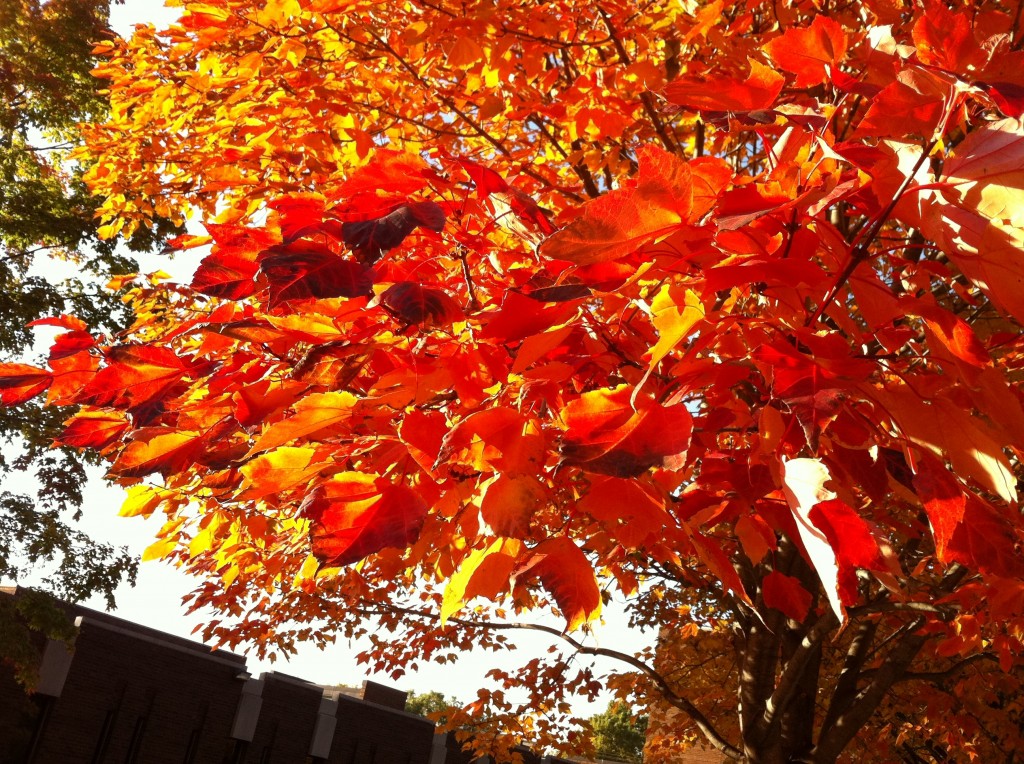“Mommy, do you actually work when you’re in Minnesota?”
I burst out laughing. Before I could really ask for any clarification about that question, my husband jumped in. “Well, we were looking at all the things on your calendar — like a concert and a massage — and we thought it looked like you were having a lot of fun . . . so we were just laughing together and wondering if Mom really does any work while she’s gone. . . .”
I was still laughing. Feeling very good natured about it actually. My husband knows how hard I do work and even over-work at times. I was delighted that my daughter was in on the little joke. And I was also still humming the tunes of the concert, and feeling the joy and amazement of watching the gift and power of virtuosity spill out over an audience the evening before.
On an unseasonably warm October night in the Twin Cities some friends and I climbed the hill at St. Cate’s and found our way to the campus auditorium. The Will Call line (which we were able to avoid) was flowing out the front doors, over the sidewalk and nearly to the lawn. We found our seats and very soon the lights went down.
The scene opens with Esperanza Spalding coming out to a small set, stage left. She removes her all-weather coat, kicks off her shoes, places a flower in a vase already bursting with color and then pours herself a glass of wine. She settles into a wing chair and tucks her feet up in the chair and settles back.
The lights go dim on that scene and the come up on the main stage. The open space is backlit by a wash of blue. An oriental rug is at center stage and a large bass is propped there waiting. A piano is stage right. Drums and percussion are stage left. Three seated string players and one standing vocalist complete the crescent. The strings begin playing softly. The spell has been cast and for the next ninety minutes or so we all sit mesmerized by the voice, lyrics, musical improvisations, the aura that is Esperanza and her Chamber Music Society.
She says in an mini documentary about the making of her last album that she chose the title because she loves the idea that chamber music is music for friends, for relaxing, “for a party or a dinner,” for enjoyment. It’s “for everyday people.” She brings us right into her living room and we have a front row seat on the society of music, friendship, love and beauty.
Over the course of the evening, Esperanza plays her base like a drum, with a bow, with her hands. She sings, plays, dances, scats, and very occasionally speaks directly to the audience. Her prodigy is stunning. She inhabits her practice with grace and ease and is totally in the flow of her art.
Over the last few weeks as I’ve been anticipating the concert, it has been “Wild Is the Wind” that stood out to me. (You can watch a performance here.) The song was written in 1957 and first recorded by Johnny Mathis then covered by many artists, most famously by David Bowie. The live performance I took in this week did not disappoint.
The passion and power of this song, and Esperanza’s interpretation generate much that could be said. More listening repays with more to notice, think about, say. What strikes me over and over about this song, however, is its sacred character.
The morning after the concert I found myself sitting in chapel looking at John 3. The preacher stopped shy of verse eight, but I lingered over it: “The wind blows wherever it pleases. You hear its sound, but you cannot tell where it comes from or where it is going. So it is with everyone born of the Spirit” (Jn 3:8).
As I reflect on Esperanza’s capacity to put her self in the flow of the creative and powerful energy of the Spirit, this is my enduring thought: if we could believe, really believe that we were loved this much, with the passion and force of this song, we would indeed be born anew, “creatures of the wind.” And if we knew this, really knew it, what could possibly move us to insecurity, anxiety or rage ever again?
“for my love is like the wind
and wild is the wind”
“like a leaf clings to a tree
darling cling to me”
God is the wildest wind and clinging tree
upholding us and carrying us out into the world all at once
loving us wildly and tenderly as we go.




